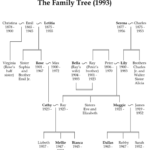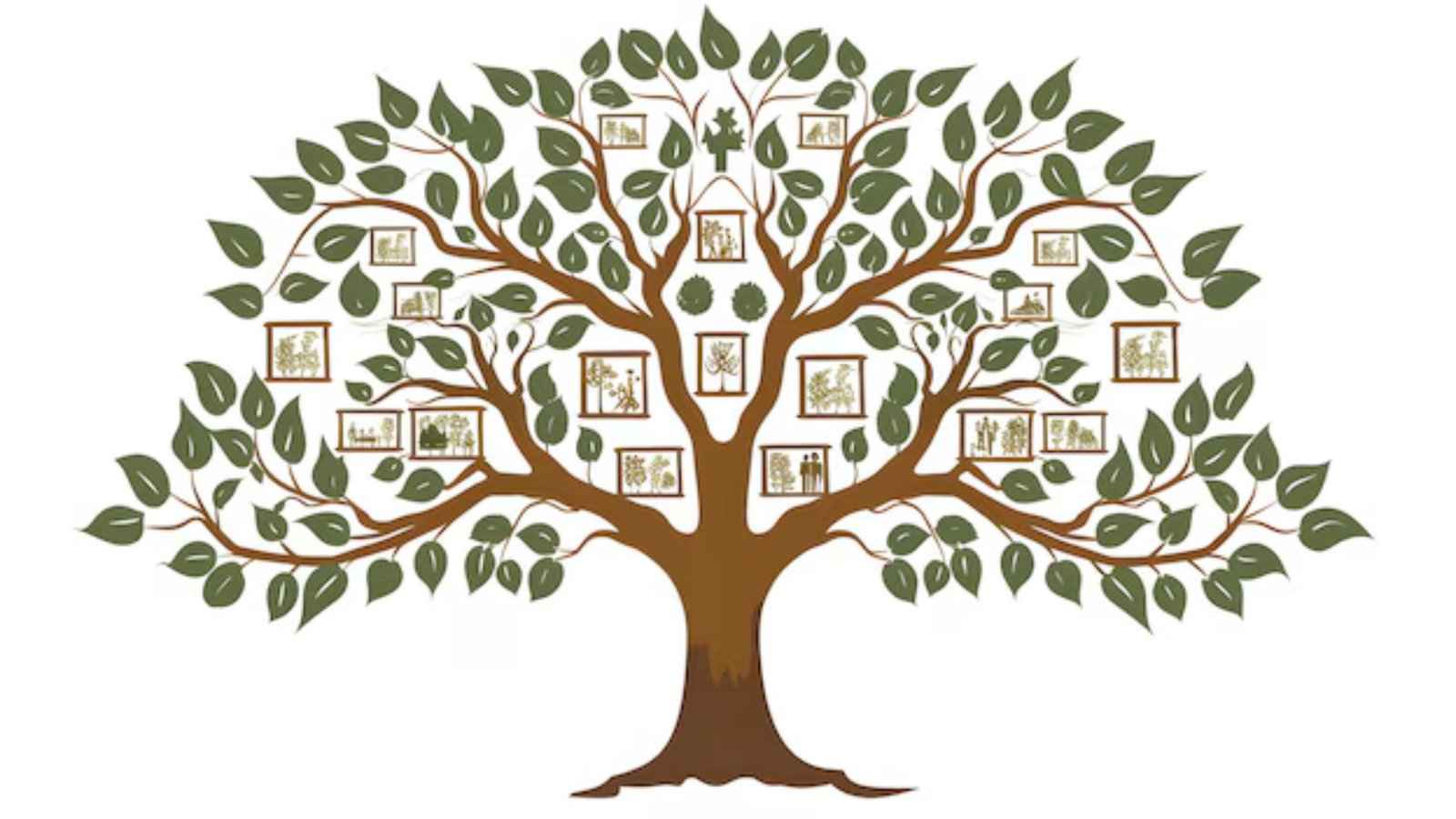Family trees hold significant value in our lives as they help us connect with our roots, preserve family history, and understand our heritage. They offer a visual representation of ancestry and provide a deeper understanding of our personal and cultural identity. Whether for personal curiosity or academic research, family trees serve as a gateway to uncovering the past and strengthening family bonds. In this article, we will explore the importance of family trees in our lives.

Preserving Family History and Heritage
One of the most significant reasons for creating a family tree is to preserve family history and heritage. By documenting the names, dates, and important milestones of ancestors, family trees serve as a living record that can be passed down through generations. This helps families remember their traditions, values, and stories, ensuring that future generations understand where they come from. Preserving family history also helps people connect with their roots and feel a deeper sense of belonging.
Family trees provide an organized way to store and share family information, making it easier for future generations to learn about their ancestors. When family stories are passed down orally, they can sometimes get lost over time. A family tree acts as a reliable record to keep this valuable information intact.
Understanding Ancestry and Ethnicity
Family trees allow us to gain insight into our ancestry and ethnicity. By tracing your family tree, you can discover where your ancestors lived, what cultures they belonged to, and even what occupations they held. This helps build a clearer picture of your ethnic background and may even reveal connections to historical events or famous figures.
In some cases, family trees can lead to discovering ancestral connections that span different countries or regions, shedding light on the diverse cultural makeup of a family. Understanding your ancestry can also provide valuable context to your own identity, as it helps you understand why you may share certain traits, customs, or behaviors with your family members.
Strengthening Family Bonds
Family trees are not only useful for tracing our roots, but they also have the power to strengthen family bonds. When you explore your family tree with loved ones, it creates a shared experience that fosters connections between generations. This shared exploration of family history can open doors for conversations, creating opportunities for family members to come together, share stories, and celebrate their heritage.
Building a family tree project often involves reaching out to relatives, researching together, and compiling information. These activities promote collaboration, bringing family members closer and creating lasting memories. It also helps younger generations feel more connected to their ancestors, offering them a sense of pride and identity.
Learning About Historical Events
A family tree not only helps you understand your direct ancestors, but it can also uncover important historical events that your ancestors lived through. By tracing your lineage, you may learn about significant historical moments such as wars, migrations, or social movements that affected your family. These insights allow you to see history from a personal perspective, making historical events more meaningful and relatable.
For example, you might discover that your ancestors were part of a great migration or fought in a major war. Learning about these events can deepen your understanding of history and give you a sense of pride in your family’s resilience.
Supporting Genealogical Research
Family trees play a crucial role in genealogical research. They serve as a valuable tool for researchers and historians, offering a structured framework to trace and document family lineages. A well-documented family tree can also help researchers identify potential connections and genealogical patterns across different families.
Genealogical research often relies on a combination of written records, DNA testing, and oral history. Family trees help organize these findings in a way that can be easily shared and understood, making the research process more efficient. For those interested in discovering lost branches of their family tree, a well-organized family tree can provide a starting point for further exploration.
Providing a Sense of Belonging
Another important aspect of family trees is that they provide individuals with a sense of belonging. Knowing where you come from and understanding your family’s journey through history can provide a strong foundation for your personal identity. It allows you to see how generations of your family have overcome challenges, celebrated milestones, and contributed to the world around them.
Having a sense of belonging to a family lineage helps build self-esteem and offers individuals a place within a larger story. It can be especially meaningful when you discover how your ancestors shaped the world around them, leaving behind a legacy that continues through you.
Conclusion
The importance of family trees lies in their ability to preserve family history, connect us with our roots, and strengthen family bonds. They help us understand our ancestry, appreciate our heritage, and build a sense of pride and belonging. Whether you’re researching for personal curiosity or as part of a larger genealogical project, family trees offer valuable insights into who we are and where we come from. By creating and sharing your family tree, you contribute to preserving your family’s legacy for future generations.










